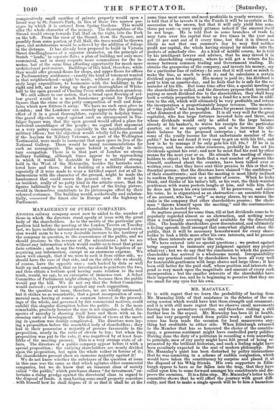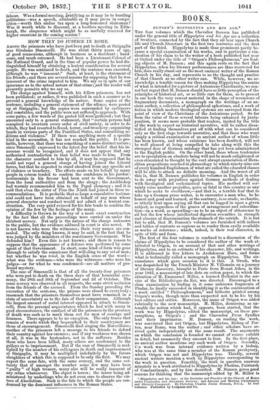MR. MACAULAY.
IT is with regret that we learn the probability of having from Mr. Macaulay little of that assistance in the debates of the en- suing session which would have lent them strength and ornament; and it is with still more regret that we observe small movements forcing him to premature exertion, and therefore risking a still further loss in the sequel. Mr. Macaulay has been ill in health, and has very properly rested from public work ; and that quies- cence has been made the occasion for local.manoeuvres .any- thing but creditable to either side. When Edinburgh returned to the Member that has so honoured the choice of the constitu- ency, a generous sentiment might have controlled party politics. Having done the duty of a politician in recording a vote according to principle, men of any party might have felt proud of being re- presented by the brilliant historian, and such a feeling might have been peculiarly expected in the seat of modern philosophy. But Mr. Macaulays quiet has been disturbed by paltry insinuations that he was conniving in a scheme of sudden resignation, which would have taken the constituency by surprise and placed it at the disposal of his Whig friends. His own supporters in Edin- burgh appear to have so far fallen into the trap, that they have called upon him to come forward amongst his constituents and dis- prove the surmises. It is a false step. Mr. Macaulay's letter to his committee shows that he will effect the journey with great diffi- culty, and that to make a single speech will be to him a hazardous
labour. Was a formal meeting, gratifying as it may be to bustling politicians—was a speech, admirable as it may prove in compo- sition—worth this undue tax upon a long-honoured statesman? Was it worth while to discount, at a bootless meeting in Edin- burgh, the eloquence which might be so usefully reserved for higher occasions in the coming session ?



























 Previous page
Previous page